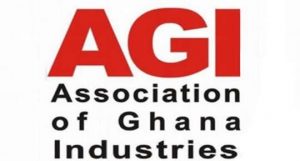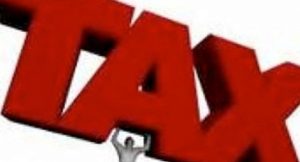As the finance minister prepares to deliver the mid-year budget and supplementary estimates to parliament on Thursday, a tax analyst – Francis Timore Boi – has advised government to reinstate the 17.5% GETFUND and National Health Insurance Levy (NHIL) of VAT to their former status.
In the 2018 mid-year budget, Ken Ofori-Atta announced that the NHIL and GETFUND components from VAT have been separated and are now straight levies. This move, Mr. Boi contends, has brought undue hardship to businesses due to the cascading effect from the levies along the production chain.
According to him, consumption taxes in the nature of levies are not the best for businesses in a developing economy like Ghana. “Businesses are not consumers but rather producers. They should not be compelled to pay consumption taxes. The principle of consumption tax is that businesses are used as agents to collect the taxes. The general view is that they should be allowed input VAT for all VAT paid on their purchases,” he stressed.
He is of the view that it would be prudent for government to rather impose input tax on businesses to shift the burden along the chain to the final consumer. “The effect-split is that while the total of VAT plus levies will remain at 17.5%, suppliers will only be able to deduct the 12.5% VAT component on purchases. The 5% (NHIL plus GETFUND) levy paid on purchases will be treated as part of business expense, which increases production cost.
“If you split the taxes and make only 12.5% input VAT deductible – and now with the COVID-19 levy making it 6% non-deductible input VAT which includes the 1% COVID-19 levy – businesses will have to absorb the 6% into their cost. Again, the VAT is calculated on the levy-inclusive price which increases prices the more,” he added.
Lamenting about the negative impact of the move on businesses, Mr. Boi pointed out that the adverse effect of the situation is that all the 5% GETFUND/NHIL levy is imposed on only producers, leaving distributors exempted.
He is worried that the situation creates concerns when looking at the concept of moving from a “taxation to production” policy. “What are you doing to the production system? You are suffocating the production system. I think it is time to reinstate the levy back to its original status to give some space for businesses in the production sector to grow,” he noted.
Improving informal sector revenue
Touching on new ways to improve revenue collection, particularly in the informal sector, Mr. Boi maintained that the Ghana Revenue Authority (GRA) must be firm in enforcing the laws which address taxation in the informal sector.
“The tax net, in my view, drills down to enforcement. It only requires implementation. There is a portion of the Income Tax Law that was passed in 2015 on Modified Taxation which was supposed to deal with taxation of the informal sector.
“That part of the law has not been implemented yet, and I think it is overdue. If we think the law is not well-drafted to address the informal sector, we should come up with a new strategy to deal with the sector. The GRA has been very lenient on the informal sector players,” he said.
Mr. Boi observed that the tax stamp used for the informal sector is not collecting enough to commensurate with the amount of money in circulation in that area.
“Look at the tax stamp that was introduced to collect taxes from Commercial Vehicles and other operators. The truth is that a lot of commercial activities take place in the informal sector, yet they pay too little. Taxi drivers pay GH¢12 per quarter. How much do they make per month? How do we tax uber drivers? Think of artisans and chop bar operators. The tax burden is completely unbalanced, and those who earn more pay less. I expect this budget statement to revise the rates on tax stamps,” he opined.
The situation, he said, has compelled government to adopt too many indirect taxes – which in itself is a burden and retrogressive.
Reducing indirect taxes
Mr. Boi stated that the current tax structure whereby about 60% of taxes come from indirect taxes because they are easy to administer is not the way to go. According to him, the negative effect of indirect taxes is that the poor suffer all the more.
He explained that an increase in a consumption tax essentially reduces real income, and results in lower household consumption – where poorer households spend a larger proportion of their income. “In 2019 the ratio of Indirect – Direct tax was 58% – 42%; in 2018 it was 63% – 37%. The trend continues; and just this May 2021 we had COVID-19, Sanitation and ESLA levies. This tells you that our tax policies are balanced toward indirect taxes.”







